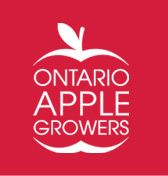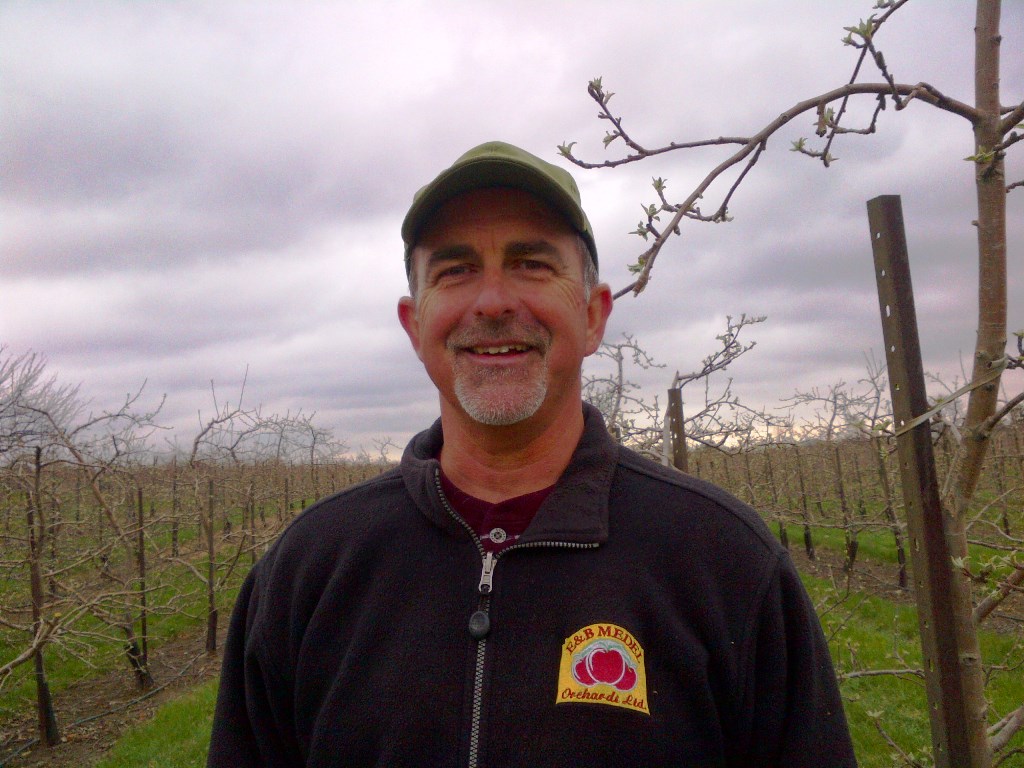When growing apples is in your blood
Growing good quality apples, peaches, pears and plums while ensuring consumer and environmental safety, is a passion for Bill Medel and his family in Ruthven, Ontario.
Medel is a second generation apple grower who now has some of his grown children working alongside him. Growing up working in the apple orchard, it took six months at an alternate job after school to decide the orchard was where he should be. Now, he is sharing that love with the next generation of his family.
“Growing up I enjoyed working on the family farm. My parents and my siblings all worked together. We now have three generations working side by side,” says Medel.
With a family history beginning in the apple industry in 1961 and spanning three generations, Medel and his family have seen many changes over the years. With his strong roots in the industry, Medel is excited about the changes that have happened in the industry, and the potential he sees in the future. Medel and his family are drawing on past experience but have also embraced current research and technology to produce fruit which is superior quality and has a high level of safety for consumers.
Medel notes the changes are not confined to one area of the farm. Over the years, government initiatives to make sure Canadian food is among the safest in the world have lead to an increasing number of records being kept on the farm which track everything that happens with the crop. In addition, there are changes happening at the production and marketing end.
“When it comes to the production end, it’s very exciting. There are so many innovative things in terms of high density planting and new varieties that it’s really what keeps you going some days,” says Medel.
According to Medel, the number of trees being planted per acre has increased dramatically from the time he was a teenager. This change has been driven by the need to be more efficient and the pressure to produce a better quality product.
In Medel’s orchard, all of the varieties of fruit being grown are from dwarf varieties of trees. Dwarf trees make management easier for the people working in the orchard by allowing workers to be on the ground while pruning trees and thinning and picking fruit. There are only a small percentage of trees where the workers have to use ladders to complete management tasks.
In addition, dwarf varieties mean there is less wood to dispose of after pruning and they have a reduced water requirement per tree. In orchards with high density planting and the use of dwarf varieties, crop protection products, when used, are being applied more directly to the trees to reduce environmental contamination.
That being said, Medel, like many fruit growers in Canada, has implemented an Integrated Pest Management, or IPM, approach. IPM is a pest management system which uses a combination of mechanical (e.g. tillage), cultural (e.g. using certified seed), biological (e.g. use of a pest’s natural enemies), or chemical (e.g. crop protection products) methods to control pests in a program that is both economically and environmentally sound.
With the introduction of new pesticides, only certain species are targeted, so beneficial insects which are natural predators to the pests are able to build up. In time, this allows growers to stop spraying for certain insects all together. Another way to reduce pesticide use in the orchard is through the use of mating disruption, which Medel is currently implementing in certain areas of his orchard. This method has the grower introduce sterile pest insects into the environment to reduce the numbers of that pest in subsequent generations.
“We’re a third generation farm, hoping to give our grandkids the opportunity to be part of the future. I want people to buy our fruit, enjoy it and feel good about eating it,” says Medel.
Story by Patricia Grotenhuis for Farm & Food Care/Ontario Apple Growers







